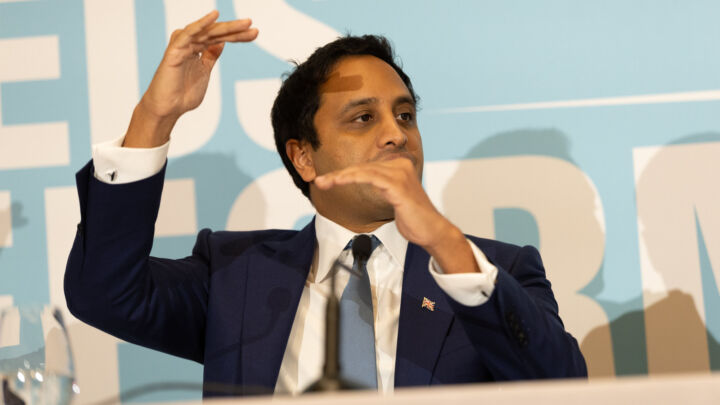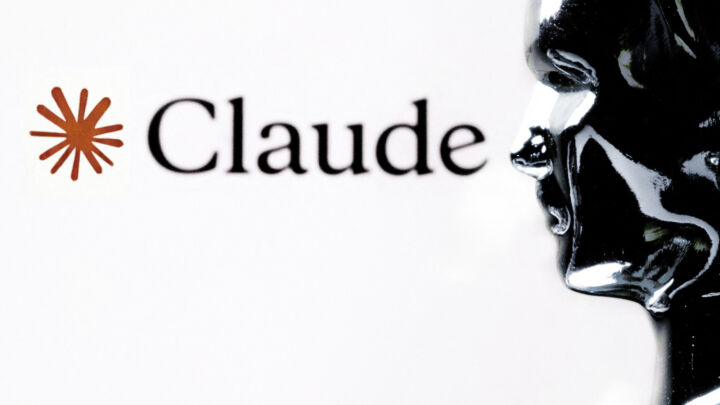Grooming gangs, multiculturalism and the silence of the ‘progressive’ feminists
Women and girls have been sacrificed to political correctness.

Want unlimited, ad-free access? Become a spiked supporter.
What happened to all the progressive feminists? At a time when the industrial-scale exploitation of girls across the UK has been back at the top of the news agenda, we have heard remarkably little from what you might call the professional feminist set.
Louise Casey’s audit on grooming gangs, published last week, was sufficiently explosive to force UK prime minister Keir Starmer to u-turn on his opposition to holding a national inquiry into the scandal. Of course, in many ways, the report merely underlined what victims, parents and a few brave journalists have been trying to communicate for decades: that vast swathes of young girls across the UK have been sexually exploited by grooming gangs, made up disproportionately by Pakistani Muslim men.
Crimes against these children included gang rapes, beatings, druggings, enforced pregnancies and enforced abortions. One girl and her family were killed after her abuser set her home on fire. Many of the victims were pre-pubescent children. What’s more, these crimes were continually ignored and, in some cases, actively covered up by the authorities because they feared accusations of racism, or damaging ‘race relations’.
You might think that anyone claiming to be concerned about the wellbeing of women and girls would have a hell of a lot to say about all this. Yet the Casey audit has been met with stony silence from many quarters.
I’m not talking about all feminists, by any means. True veterans of feminist struggles, such as journalist Julie Bindel, have been at the forefront of uncovering these sick crimes. Many gender-critical campaigners have been similarly vocal in their condemnations of the rape gangs. But there is a certain type of elite feminist who has displayed some truly warped priorities.
In recent years, elite feminists have launched campaigns against such pressing matters as ‘manspreading’, ‘mansize’ tissues and supposedly sexist thermostat settings. They have campaigned for ‘period positivity’ and gender-self ID. As the #MeToo movement raged from 2017 onwards, we learned of the supposed horrors of having a fleeting hand on your knee, or of an awkward encounter with a colleague at the watercooler. Perhaps when their busy schedules open up again, the great and good will issue a slew of outraged statements and furious tweets on the mass rape of working-class girls.
If the grooming-gangs scandal has exposed anything about the state of progressive feminism in Britain, it is that its sympathies only extend to certain types of women, with certain types of problems, caused by certain types of men. Indeed, there is something darkly comic about a ‘feminism’ that pushes to have London’s Tube stations plastered with posters reminding men that ‘staring is sexual harassment’, yet ignores the endemic, violent abuse of thousands of girls for decades.
London mayor Sadiq Khan calls himself a ‘proud feminist’. Yet he has said nothing about the grooming gangs since Starmer’s announcement of a national inquiry. He once refused to answer whether he believes there are any rape gangs active in London – a city where sexual violence against women and girls rose by 7.4 per cent in the past year.
The Labour government has been no better nationally. Although it has pledged to ‘halve violence against women and girls’ by addressing ‘the root causes of abuse and violence’, the PM only launched an inquiry into grooming gangs when it became clear that dissembling was no longer an option. Arguably, the most forceful opposition to a national inquiry came from self-described ‘gobby feminist’ Jess Phillips, the safeguarding minister, who initially refused local councils’ requests to hold judge-led inquiries into their areas. Labour’s Lucy Powell, leader of the House of Commons, dismissed the grooming-gangs scandal as a ‘dogwhistle’ as recently as last month.
‘Believe all women’ was the #MeToo mantra. But this was, for many years, never extended to the girls who were raped above kebab shops in Ramsgate or Rochdale. They had to keep quiet for the good of multiculturalism. Wrong type of girl, wrong type of perpetrator. Perversely, those who even acknowledged what was going on were accused of peddling some kind of racist conspiracy theory.
This squeamishness around tackling abuse when it is committed by migrants or ethnic minorities extends well beyond grooming gangs. UK-wide, foreign nationals are convicted in a quarter of all recorded sex crimes. In London, two-thirds of arrests related to sex crimes are of foreign nationals. Are we even allowed to talk about this?
Woke feminists refuse to address the elephant in the room. Which isn’t race or ethnicity, but culture. Of course, there is no biological reason why Eritrean men in Britain should be over 20 times more likely to be convicted of a sexual offence than people born in Britain. It is not down to genetics that Congolese nationals are 12 times more likely to be convicted of violent crime. Nor that Pakistani-origin men have long been overrepresented in grooming prosecutions.
Sadly, there remain many non-Western cultures where misogyny is prevalent, where women are seen as inferior, where ‘impious’ Western women are seen as ‘fair game’. Local traditions, religion and tribalism can all play a role. These are not ‘racial’ matters, and nor are these cultural factors fixed. Culture can be challenged and changed, just as backward attitudes were once challenged in the West. You would expect feminists of all people to recognise this.
When commentators do deign to comment on disparities in the crime data, feminists in academia and the NGO world ignore the role of culture. Instead, they have tended to blame them on policing bias. They say such statistics are an artefact of who gets stopped, arrested and charged by a justice system they denounce as ‘systemically racist’. The grooming-gangs scandal turns this narrative on its head – the crimes of minority offenders were covered up by just about every wing of the state. But that doesn’t seem to have registered with the woke intersectionalists.
When migrants come from countries where there is female genital mutilation or honour killings, or where rapists are let off the hook if they marry their victim, we shouldn’t expect such ideas and practices to simply disappear at Dover. We need to make serious efforts to integrate people into society, to make it clear where we stand and what is expected of new arrivals. Yet even accepting that we have a problem with integration is treated as tantamount to heresy. Even saying that Britain should have control over its borders, if only just to keep track of who is coming in, has seen people accused of racism.
As if spurious accusations of racism haven’t already done enough to keep people silent, the UK government is about to make matters even worse. It wants to bring in an official definition of ‘Islamophobia’, based on a report produced by the All-Party Parliamentary Group on British Muslims in 2019. This definition insists that the debate around grooming gangs works to ‘humiliate’, ‘marginalise’ and ‘stigmatise’ Muslims. Should a similar definition be imposed on the government, it is certain to chill the discussions we need to have about sexual violence.
One terrible irony of all this is that among those who suffer most from this pervasive culture of silence are women from minority and Muslim backgrounds. In recent years, we have seen Sharia councils in Britain requiring women to provide two male witnesses to their abuse before granting a divorce. Men with multiple wives have been offered benefits for their second spouses, so long as the marriages took place in a country where polygamy is legal. A mosque in West Yorkshire was once caught facilitating child marriages. Women such as Iraqi Kurd Banaz Mahmod and British Pakistani Shafilea Ahmed asked for help multiple times before they were slaughtered in so-called honour killings, where people are murdered by their family members for supposedly bringing shame on the family. We might expect these women to feel unable to speak out in patriarchal, theocratic countries – but this is modern Britain. Why was nobody listening?
These are the bitter fruits of Western cultural relativism. Victims are ignored because the crimes committed against them are considered politically incorrect. Perpetrators are held to different standards. We are told all cultures are equal, even those that provide fertile ground for violent misogyny. Until the great and good find their collective spine, they will continue to fail women and girls.
Georgina Mumford is a spiked intern.
You’ve hit your monthly free article limit.
Support spiked and get unlimited access.
Support spiked and get unlimited access
spiked is funded by readers like you. Only 0.1% of regular readers currently support us. If just 1% did, we could grow our team and step up the fight for free speech and democracy.
Become a spiked supporter and enjoy unlimited, ad-free access, bonus content and exclusive events – while helping to keep independent journalism alive.
Monthly support makes the biggest difference. Thank you.









Comments
Want to join the conversation?
Only spiked supporters and patrons, who donate regularly to us, can comment on our articles.